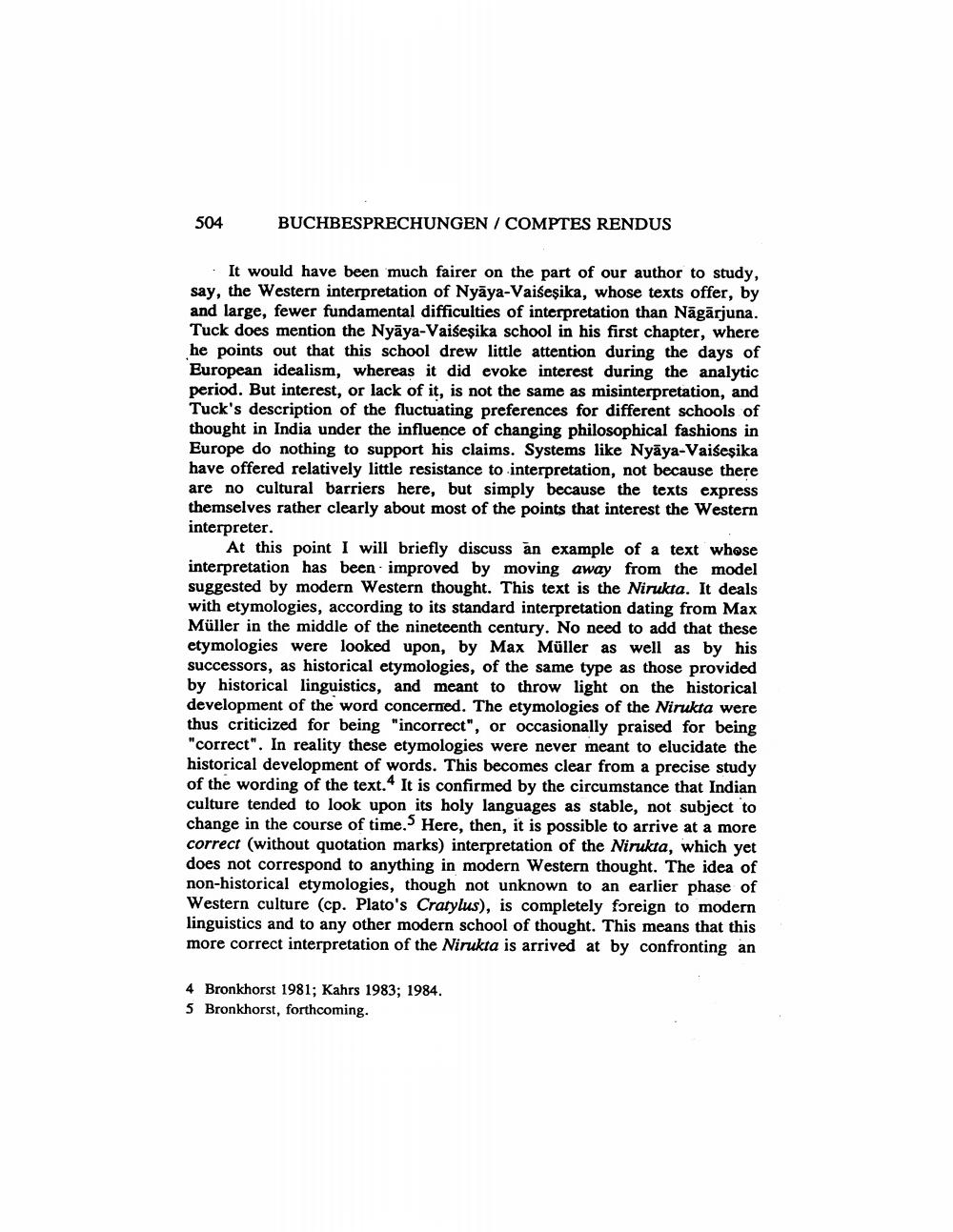Book Title: Buchbesprechungen Comptes Rendus Author(s): Johannes Bronkhorst Publisher: Johannes Bronkhorst View full book textPage 4
________________ 504 BUCHBESPRECHUNGEN / COMPTES RENDUS · It would have been much fairer on the part of our author to study, say. the Western interpretation of Nyāya-Vaišeşika, whose texts offer, by and large, fewer fundamental difficulties of interpretation than Nāgārjuna. Tuck does mention the Nyāya-Vaiseșika school in his first chapter, where he points out that this school drew little attention during the days of European idealism, whereas it did evoke interest during the analytic period. But interest, or lack of it, is not the same as misinterpretation, and Tuck's description of the fluctuating preferences for different schools of thought in India under the influence of changing philosophical fashions in Europe do nothing to support his claims. Systems like Nyāya-Vaišeşika have offered relatively little resistance to interpretation, not because there are no cultural barriers here, but simply because the texts express themselves rather clearly about most of the points that interest the Western interpreter. At this point I will briefly discuss an example of a text whose interpretation has been improved by moving away from the model suggested by modern Western thought. This text is the Nirukta. It deals with etymologies, according to its standard interpretation dating from Max Müller in the middle of the nineteenth century. No need to add that these etymologies were looked upon, by Max Müller as well as by his successors, as historical etymologies, of the same type as those provided by historical linguistics, and meant to throw light on the historical development of the word concerned. The etymologies of the Nirukta were thus criticized for being "incorrect", or occasionally praised for being "correct". In reality these etymologies were never meant to elucidate the historical development of words. This becomes clear from a precise study of the wording of the text. It is confirmed by the circumstance that Indian culture tended to look upon its holy languages as stable, not subject to change in the course of time. Here, then, it is possible to arrive at a more correct (without quotation marks) interpretation of the Nirukta, which yet does not correspond to anything in modern Western thought. The idea of non-historical etymologies, though not unknown to an earlier phase of Western culture (cp. Plato's Cratylus), is completely foreign to modern linguistics and to any other modern school of thought. This means that this more correct interpretation of the Nirukta is arrived at by confronting an 4 Bronkhorst 1981; Kahrs 1983; 1984. 5 Bronkhorst, forthcoming.Page Navigation
1 2 3 4 5 6 7 8 9 10
